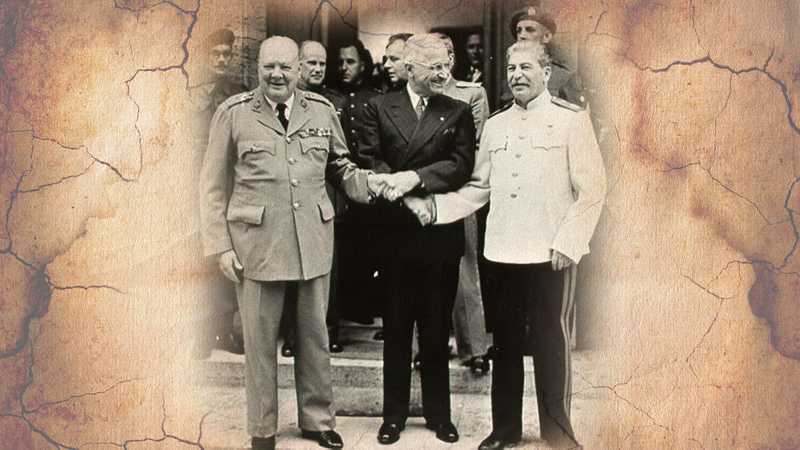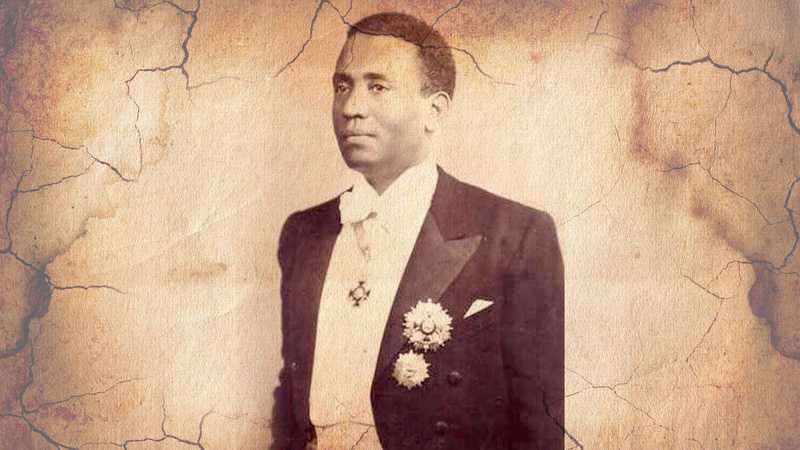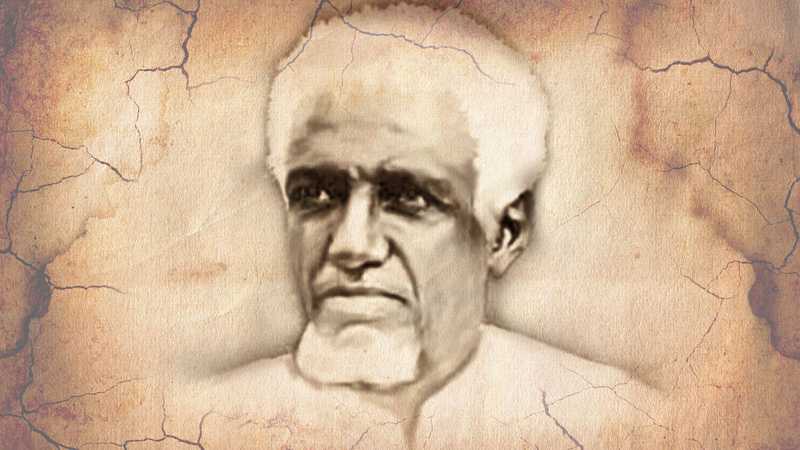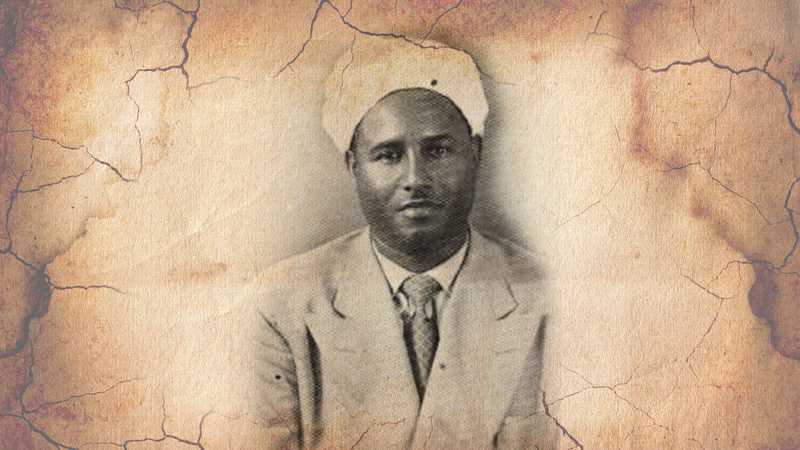The Arrival of the Four Powers Commission in Eritrea
12 Nov, 1947
The Four Powers Commission arrived in Eritrea and found Eritreans divided on independence with most highland Christians favoring Union with Ethiopia while Muslims preferring independence.
 Main leaders of the victorious Four Powers: Churchill (Great Britain), Truman (USA) and Stalin (USSR) at Postdam Conference in Germany, 1945
Main leaders of the victorious Four Powers: Churchill (Great Britain), Truman (USA) and Stalin (USSR) at Postdam Conference in Germany, 1945
After World War II had ended with the victory of the Allied forces, where Italy was defeated, in 1947, the Four Powers - namely USA, USSR, Great Britain and France - dispatched a joint Commission of Enquiry to Italy’s former colonies to decide on their fate. Most of the members of the commission were not quite familiar with Eritrea’s case. One of them however, General Frank Stafford of Great Britain, would play a significant role in deciding Eritrea’s future. He had been serving as an advisor to the Ethiopian government from 1941 to 1944. Having had this role priory to the inquiry, it was a clear conflict of interest for him to be in the commission. But it was not without reason and clearly that was the plan all along.
The Al-Rabita Islamia Party, or the Muslim League, held a press briefing soon after the arrival of the commission clearly opposing union with Ethiopia, also stating that Eritrea was capable to self-administer itself, and that all its territories should stay intact and should not be divided up between Sudan, Ethiopia or Egypt. They also reasoned that if Eritrea was deemed not to be able to self-administer at that time, that it should stay under the British Administration with UN trusteeship, with administration duties being performed by indigenous citizens and not resident Italians.
The commission met with leaders of most of the parties or associations at the time.
The first of the significant meeting were held with Ato Tedla Bairu, the leader of the Unionist Party, who advocated for an immediate unification of Eritrea with Ethiopia, going as far as painting imperial Ethiopia as a democratic state.
 Ato Tedla Bairu, leader of the Unionist Party
Ato Tedla Bairu, leader of the Unionist Party
The Association of Eritrea for Eritreans was represented by Raesi Tesema, Degiat Abraha Tesema, Degiat Sebhatu Yohannes among others. They argued for full separation from Ethiopia with no pre-condition. They recommended for the continuation of the provisional British administration which had played a significant role in the expansion of education and modernization of the former-colony. This arrangement would be until the formation of the Eritrean Assembly which will eventually decide on all issues regarding the new state.
 Raesi Tesema Asberom, leader of Eritrea For Eritreans Association
Raesi Tesema Asberom, leader of Eritrea For Eritreans Association
The Al-Rabita Islamia Party led by Sheik Ibrahim Sultan, Abdulkadir Kebire, Mohammad Osman Kayoti of Massawa, Qadi Mussa of Keren and Degiat Ali Hassen reiterated the points it outlined in its press brief. They also added that Muslim and Christian Eritreans live in harmony and brotherhood. They also made the case that Ethiopia was involved in terrorist activities against pro-independent figures that included assassination attempts and other corrupt means such as bribing.
 Sheik Ibrahim Sultan, leader of Al-Rabita Islamia or the Muslim League of Eritrea
Sheik Ibrahim Sultan, leader of Al-Rabita Islamia or the Muslim League of Eritrea
During this time, terror and intimidation activities were at their highest by the Ethiopia-funded, pro-union elements. Disrupting planned gatherings, violence against members and leaders became frequent. Many were wounded and hospitalized and properties were destroyed. The perpetrators had always a refuge in Ethiopia if the law ever came after them. But the British Administration simply chose to be an observer to all this and did not do any law enforcement to alleviate the issue. All calls for protection were ignored. The Commission also ignored the complaints from the parties that were being attacked. The pro-independence members did not have the means to fight back as their parties were non-violent by nature and had no where to go.
Other parties such as “Shara Italia” (Italian Allied [Eritreans]) did also present their case. Overall however, this all was done for formality but the ultimate decision was already made. The fact that all the pro-independence parties did not coordinate their responses to some of the Commission’s questions also did not help to make their case for full independence. Examples include membership numbers of parties, Eritrea’s transitional trusteeship plans etc. The Commission did exploit these discrepancies on putting out its pre-cooked recommendation.
In conclusion, the Commission found that the Eritrean population was divided into three main factions: pro-Ethiopian Unionists, for the most part Christians, who demanded that Eritrea become part of Ethiopia; Muslim League members who were strongly opposed to the union; and members of a Pro-Italian party, many of them Italian pensioners, who advocated the restoration of Italian rule. The commission’s report was inconclusive, but it was generally agreed that the Muslims constituted a majority of the population and that they were opposed to union with Ethiopia. The United Nations (UN) General Assembly therefore decided in November 1947 to place Eritrea under British military administration for a period of 10 years, after which time it would become an autonomous province or state within Federal Ethiopia. This arrangement was confirmed by the General Assembly in May 1950.
